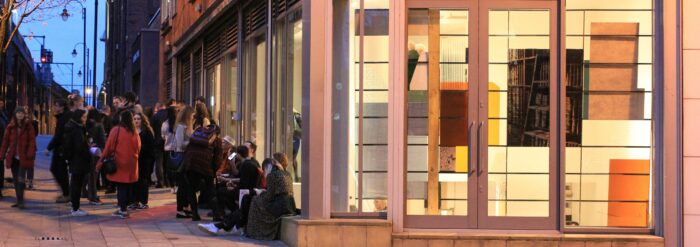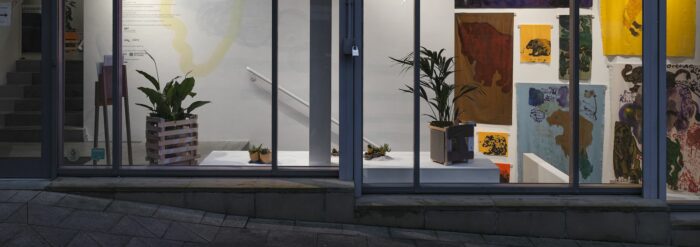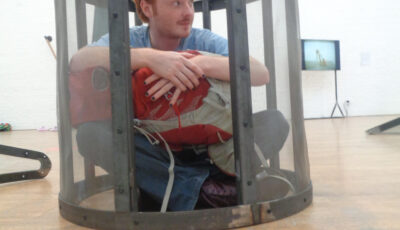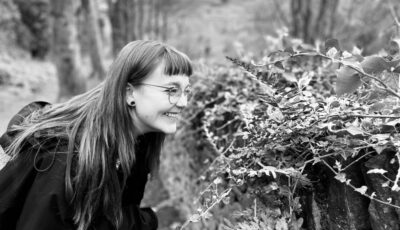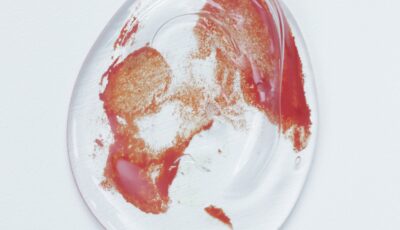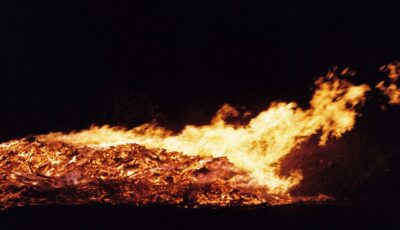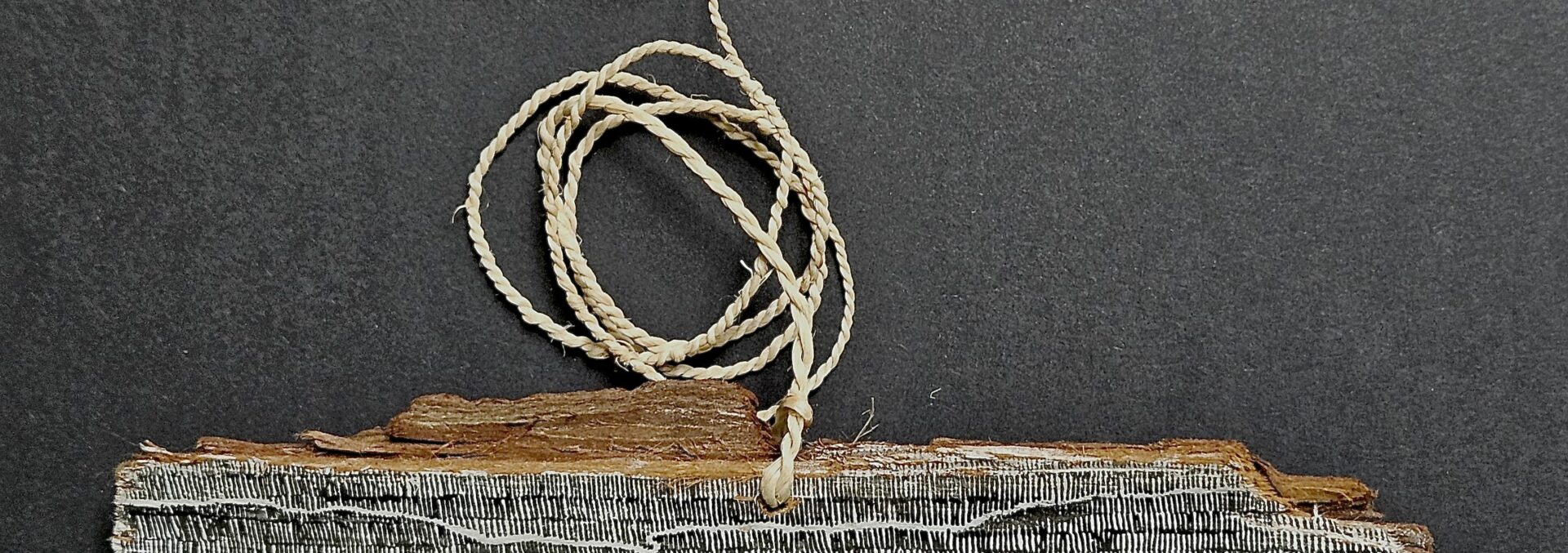
Spotlight: Artists and Sustainability – Keziah Thomas-Mellor
Posted on 17 April 2024
This month we’ve invited Keziah Thomas-Mellor to contribute to our ongoing series Spotlight – Artists and Sustainability, where we ask artists to share short responses about their work and how it might relate to climate change.
Keziah Thomas-Mellor was one of our 2023/24 Manchester School of Art Castlefield Gallery Graduate Mentees. She took part in a year-long programme, developed and delivered by Castlefield Gallery to support artists in their first year after graduation.
In what ways do you feel your work might relate to issues of climate change and sustainability, in the content of the work, its narrative, conceptually or theoretically. How might it speak to or challenge public discourse?
Previously, I have struggled with my work’s relation to climate change, often feeling the pressure to champion a bold statement or address the increasingly dire situation we appear to be in, but could not identify the right voice to do so.
Then, during university, a friend recommended Feral by George Monbiot, which stated, ‘ecological restoration is a work of hope’. This stuck with me, so I began reflecting on my relationship with the environment and the humbling wellbeing I find amongst it.
I embraced and reflected upon personal experiences from growing up on paved, concrete pathways to accessing our ‘green and pleasant’ land from previous walks, journeys or climbing. My piece ‘Lost in the Uplands’ was influenced by a journey I made climbing the north face of Tryfan with my partner. On our way back we became lost; racing the sun back down, we followed game trails that we mistook for pathways. We eventually were faced with a 50ft drop and were left with no other choice but to scramble down it.
At the bottom, nestled in a small bush, was a glaringly white coffee lid. This struck a chord with me and my previous perception that “wild” British landscapes were untouched. Here in a seemingly unreachable part of nature, waste from our society had managed to litter the surroundings, scarring the Earth.
The presence of escapism that is often found in nature echos throughout my work, yet becomes disrupted by connotations of neoliberalism hyper productivity, land accessibility, and capitalism’s impact on climate change. I aim to enable intimate interactions that create space for open ended responses from participants, to reflect upon personal and societal relationships with the landscape. Such as, using binoculars to journey through the gallery to gaze upon the peaks of harsh mountains drawn onto coffee lids. My work is not forceful, instead it is subtle and delicate.
With regards to the material processes and techniques you use to produce your work, are there any practical decisions you make with regard to climate change and sustainability?
Coming from a working-class background, I have gravitated towards recycled materials to save costs.
However, over recent years, I started thinking of the materials I use and what may happen to them after an exhibition ends, i.e. are they destined for a landfill or could they be repurposed. As such, I have actively begun embracing recycled materials, such as collecting found coffee lids, to create a more sustainable practice. Thomas Hirschhorn’s use of ‘poor materials’ acted almost as a green light for me, like reassurance. Not only is it recycled materials, but I have become fascinated in using natural materials; something that would return to the earth. I have been actively attending workshops to learn more about working with natural materials, such as foraging fibres to weave into string.
Within my work, our waste products given a new life, elevated into a strange artistic object. I also hope this encourages people to look towards embracing re-using ‘waste’ that already exists around us. What is the life and death of our objects and artworks?
In general, how do you feel galleries, art spaces, artworks and artists, might be able to contribute, what if any role do you feel they can play in a progressive conversation?
Over the past few years, the wealth of artists, galleries and communities opening conversations, sharing skills and knowledge about the impact of climate change has become more apparent, such as Olafur Eliasson, Forensic Architecture or the SPARK network. These have been incredible resources that also show the benefits of collaborating across disciplines, like bringing together Art, Science and Agriculture. Collaboration can open possibilities for viable solutions, whilst accentuating the interconnectedness between us and nature.
I believe the time for action is now. While I think it’s great to see genuine effort being made to be sustainable, no matter how small, I feel as though it has to become a way of life, not just a check-box or a post to gain likes. Being green is gentrified and almost becoming a brand. But for these larger meaningful changes to occur they have to start with institutions and as a society reassessing how we measure progress.
Institutions need to start making green pledges, reusing materials, reassessing sponsors and funding—for these institutions to take a stance sends a powerful message. But also, connecting with our communities for collective action, sharing of resources and skills, and putting pressure on companies, councils and MPs to make necessary action in protecting and rewilding our environment. Changes and solutions do not come from the arts alone, but together we can open dialogues, community actions and possible solutions. I hope these will leave an impression on policy makers and government bodies to enact change across the UK.
Are there any tips or advice, anything you have learnt you might want to share with other artists or our audiences?
As artists, while we can find our voice and promote climate change through our work, alone, our messages may fall on deaf ears. I think to see any real change, we have to band together within our communities and protest for change. 71% of emissions are produced from 100 companies, so to take action, we should be demanding change and sustainable practices from them; if we don’t consume it, they won’t produce it.
